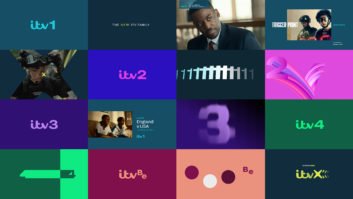We’ve all heard it. A decision goes against a team or player, and the crowd calls out the referee.
Currently, broadcasters have no choice but to either ignore it or apologise to viewers for the bad language. But according to Gonzalo Zarza, chief data officer at Sportian, the sports technology division of Globant, artificial intelligence (AI) could help cover everyone’s blushes.
Zarza sees broadcasting as the most direct way of reaching fans, and Sportian is using data to enhance the viewing experience.

“New generations are consuming entertainment and sports in a different way because they’re not sat on the sofa watching TV,” he tells TVBEurope.
“That used to be my parents’ way of watching sport, but younger viewers are consuming it from different channels, and the content needs to be adapted to them. One thing that we’re particularly focusing on is how to engage them because a lot aren’t watching the 90 minutes of a football match anymore. We need to provide them with insights and different stimuli in order to get them engaged.
“We are working on providing different views of the same play using AI models in real-time,” he continues. “For instance, if there is a penalty I want to see different angles of that same play in real time. We have the data and with Globant we have the expertise to build that.”
Sportian is also using AI to analyse the sound of the stadium to enhance the atmosphere for those watching at home.
“One of the things that our research has revealed is that most of the fans of a specific club never have the chance to go to the stadium because they may be supporting the team from a different city or country, but they want the same experience,” explains Zarza. “We’re looking at how to embed that sound within an immersive experience.”
Sportian is also assessing how broadcasters and streaming companies can provide subtitles in real-time and in different languages. “We have noticed that there’s usually a 30-second delay on the broadcast or stream, so we could intercept that original signal giving us a considerable time window to process and enhance the experience that the viewer has at home.”
That delay could also enable rights holders to stop swear words from the crowd, or players, from reaching the viewer. “Right now with advanced generative AI models, you could do that almost in real-time with one or two seconds delay so it’s within that 30 seconds time window,” explains Zarza. “And since you could transform the signal from audio to text, you’re also able to identify swear words and override those words.
“We would need to identify the different songs and chants of the different teams, probably the slang is going to be the hardest part, but it could be done,” he adds.
Sportian is working with its partner LALIGA on testing out the technology. “It started as a crazy idea and then when we started working on it internally, it wasn’t that crazy. We can use the knowledge and experience that we get from working on the translations and the real-time subtitles, to know that there is a gap where we could intercept the signal,” adds Zarza.
Meaning one day viewers may no longer ask who’s the ****** in the black.







